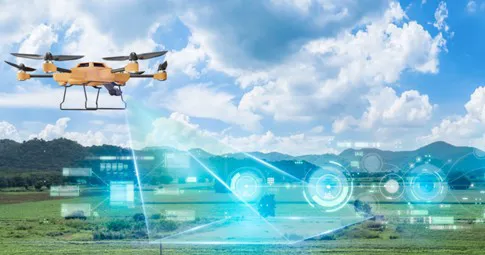In Morocco, the agricultural sector has written a solid new page in its history in 2022. According to data from the Ministry of Agriculture, shipments of agricultural and agri-food products brought in 80 billion dirhams ($7.8 billion). This amount is up 20 per cent from the $7 billion in revenues earned in 2021, setting a new record for the sector, despite a challenging international environment.

This performance is mainly due to overall growth in shipments of the sector’s main export products. In detail, fresh fruit and vegetable shipments totalled 2.3 million tons, an annual growth of 10%. “Such success and evolution cannot be achieved without a digitized business. On January 13th 2023. The Ministry of Agriculture organized the third edition of Agro IT Days around the theme of digitization for the implementation of the Green Generation strategy. The event was attended by national and international experts and involved several exhibitors making up the digital ecosystem operating in the area of agriculture and agroindustry, such as telecom operators, solution integrators and start-ups,” says Fatiha Charrat, deputy managing director for Moroccan fresh produce exporter Delassus Group.
 During the event, Mr. Kacem Bennani Smires, CEO of Delassus Group had the opportunity to present the progress of agriculture dedicated to export in digitizing processes. According to him, the sector is in the middle of a transition from traditional agriculture to more and more technological cropping systems.
During the event, Mr. Kacem Bennani Smires, CEO of Delassus Group had the opportunity to present the progress of agriculture dedicated to export in digitizing processes. According to him, the sector is in the middle of a transition from traditional agriculture to more and more technological cropping systems.
“Growers and exporters use multiple platforms to date. Digital processing solutions combining artificial intelligence and drones are in operation to ensure the flow of information and agile decision-making. For example very accurate assessment of citrus crops by UAV is a very useful tool when you know that yields vary from plot to plot,” Bennani Smires said. “Some citrus growers are already using the technique. Another example is the tool that manages Workforce planning and monitors the activities by worker. This allows compensation based on performance and benchmarking by farms and sectors. It’s particularly true in the case of large numbers of workers.”
On the packing part of the job, more and more exporters are investing in electronic calibrators and product selectors that can collect a very large amount of data so that quality can be monitored. The computer tool also makes it possible to track the number of references that have exploded in recent years with the increasingly accurate customer specifications. At Duroc, a snacking tomato Moroccan grower and exporter, more than 150 SKUs are treated daily.
“On the logistics side, Maroc Fruit Board (MFB), the leader in fruit and vegetable logistics in Morocco, launched digitalization strategy in 2014 and partnered in 2019 with a Moroccan start-up to develop the Fresh Track collaborative digital platform. It is a digital platform that connects in real time all supply chain stakeholders in a connected environment: it is based on blockchain and IoT technologies. Driven by the ambition of a creative team, Fresh Track is an innovative solution that listens to its clients and is connected to its environment,” Charrat explains.
The Moroccan state also encourages the trend of digitalization. Many platforms have been designed to facilitate administrative operations related to export such as Foodex, Portnet and Diwanati. These platforms bring together the steps necessary to carry out import and export, and give visibility of the entries to the ports: It is an interconnection between the exporters, the customs and the shipping companies. Having said that these systems are still working independently and are moving closer to build the consolidated
“Today it is no longer a luxury. Digitalization is ubiquitous and inevitable. It is no longer possible to develop without it. Nowadays we no longer talk about digitalization, we talk about A.I. and deep learning,” Charrat states. “These tools are constantly evolving. They no longer only offer to us real-time information, but information about the future, future scenarios, expectations and projections as well. It’s an intelligence that now regulates itself and learns independently.”
More importantly, these tools have become more democratic and accessible to all countries, and their adoption is a matter of will, choice and ambition. In Morocco, the agriculture sector is witnessing the emergence of very promising start-ups that deserve to be encouraged and supported because there is a risk of letting our skills go abroad.
For more information:
Fatiha Charrat
Delassus Group
Tel: +212 665 186 868
Email: Fatiha@delassus.com
www.delassus.com
